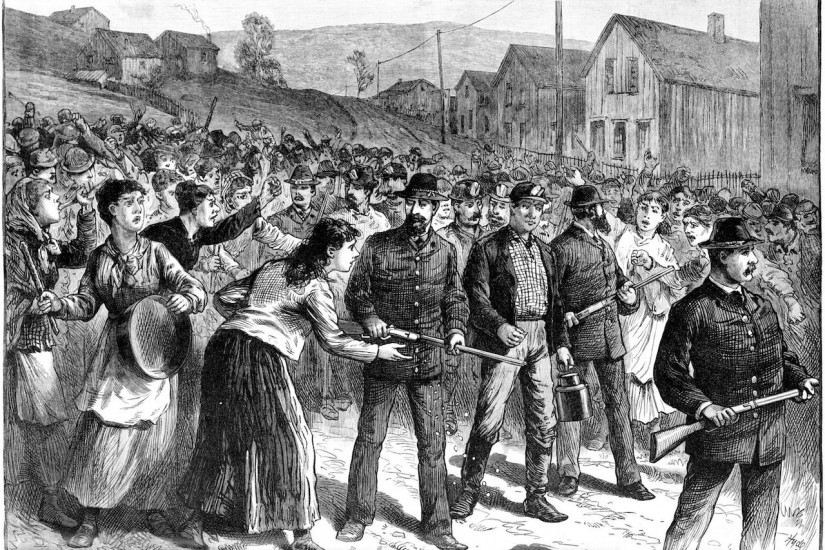Workers at the telecommunications company Frontier Communications have been on strike for 20 days in West Virginia and Virginia. Their grievances are familiar ones: Workers want more protection from layoffs, better health care coverage, and the return of contracted work to the bargaining unit. The workers’ union, Communications Workers of America, says the company is refusing to meet workers even part-way and has brought in replacement workers, or scabs. Furthermore, Frontier has hired some muscle: the Pinkertons.
Frontier has alleged that some of its cables have been cut with an axe or shot with a shotgun, and that striking workers have driven “recklessly” around work sites. The Associated Press reported on Tuesday that Frontier has offered a reward of $10,000 for information about the identity of the vandals, and the company took out a temporary injunction that it said it needed to keep the strike peaceful. In Frontier’s legal complaint was the news that the company was employing Pinkerton Consulting & Investigations for “security services,” and that the Pinkertons claimed that striking workers had “abused” them, according to the West Virginia Gazette-Mail.
Workers dispute Frontier’s accusations. In fact, a scab committed the strike’s only threat of violence when he pulled out a gun to intimidate strikers. Pinkerton’s appearance in the Frontier saga makes sense for a number of reasons, chief among them the fact that the strike is a particularly heated one. In the history of organized labor, Pinkerton is a regular foe.
Founded by Allan Pinkerton, a Scottish immigrant, in 1850, the Pinkerton National Detective Agency provided intelligence to the Union Army during the Civil War—a reflection of Pinkerton’s abolitionist beliefs. But Pinkerton’s abolitionism didn’t exactly make his agency progressive. In the late 19th century, the emergence of an empowered labor movement provided lucrative opportunities for any agency willing to defend the interests of bosses. Pinkerton detectives sided violently with capital. Pick a bloody labor conflict—the massacre of miners in Ludlow, Colorado, the Homestead battle, the Coeur d’Alene strike of 1898—and the Pinkertons played an active role in instigating hostilities. Agents infiltrated unions, spied on their activities, and reported back to company owners. “We never sleep,” they promised.
